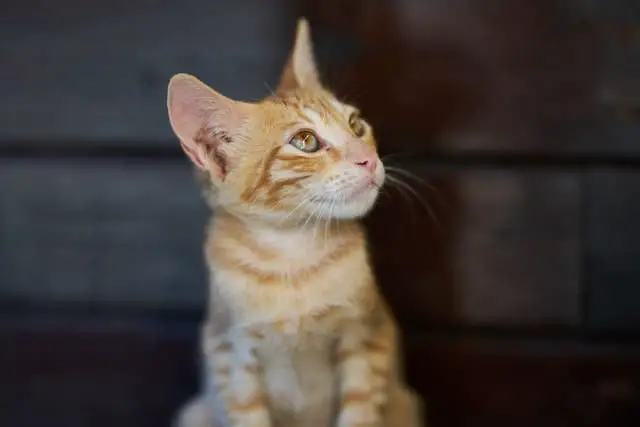
How developed is the hearing of cats compared to that of humans and dogs? Everything you need to know about this sense of our feline.
How does the cat feel? And how much is it capable of listening compared to the dog? in fact the latter is particularly famous for its developed senses, but apparently the cat is no exception. There are skills that both the dog and other animals will never be able to equate. Sometimes his sense of hearing even makes him seem ‘magical’, or with supernatural powers. Here’s everything you need to know about a cat’s sense of hearing.
The hearing of the cat compared to the dog and man
Let’s clarify a concept: the cat has a hearing higher than 4.5 to humans and 1.5 to dogs. So he surpasses them both in this capacity: as far as sound frequencies are concerned, he does not differ too much from man as regards highs while he is particularly sensitive to high ones. In fact, thanks to this ability, it is not difficult for him to capture animals that emit this type of frequencies, such as rodents and birds. For this he is able to perceive their every slightest movement or direction and then pounce on them and capture them.
As for the ultrasounds, they can perceive about 100,000 hertz per second: to get an idea of this intensity, let’s think of the squeak of a mouse. Since cats have very sensitive hearing they do not like very loud noises, and they feel very uncomfortable in houses that are too chaotic or too close to a busy road.
Intensity of sounds that the cat perceives
A sound that is almost imperceptible to the human ear, is perceived by the cat at 1/1000 of its intensity. But if their hearing ability didn’t make ‘selections’ they would go crazy for the amount of stored sounds and noises. In fact, the cat’s ear works as a filter, that is, it chooses to hear only ‘what interests it’ (such as the sounds of the animals to be captured). The squeak of a mouse is in fact ‘heard’ by the cat even at a distance of 20 meters. As with older people, older cats also begin to no longer have the excellent hearing they once did but will never lose it entirely, so they can always compensate for blindness with this sense and touch.
The cat’s ears
Feline ears never rest, precisely because they must always be ready to do or to defend themselves from ambushes. Of course, domestic cats would not have the need to hunt to get food to feed themselves, but nevertheless this predatory instinct is inherent in their DNA. Even when they sleep their ears are always active: perhaps this is why they take advantage of every favorable moment to rest, as they never manage to sleep long and serene. In fact, looking at him closely, the cat sleeps more than we do: at least he tries to compensate for the light sleep of the night.
The ears of the young cat are able to perceive even particularly high-pitched sounds and also have the ability to rotate up to 180 ° to understand the exact origin of those sounds. They can even perceive two sounds that come from two different directions and that differ very little from each other. Anatomically, this is explained by the fact that the cat’s skull contains two large resonant chambers, the tympanic bubbles, which are an enlargement of the eardrum bone.
It is the tympanic bulla that makes the difference: in fact, compared to the dog, the feline one is, in proportion, much more developed than the canine one. A bony septum divides two ear cavities: the dorso-lateral of the middle ear and the ventromedial, or hypotympanic cavity. The sounds pass through these two chambers and are greatly amplified.
Hearing in cats according to age

Even older cats have their ailments due to age: in fact, around the age of 5, the cat begins to perceive less and less sounds until it touches deafness. It seems that white cats with both blue eyes are particularly prone to this type of problem: scientifically it seems that it explains it with a recessive gene. Deafness can also be due to a disease and not necessarily to old age: otitis, neurological deficits, trauma or infections can irreparably damage the feline’s hearing.
For those who are not born deaf then life is not that simple: the young or adult cat who loses hearing before the age of seven often presents behavioral problems. It can suffer from stress, from phobias and other pathologies connected to this feeling of lack of control of situations. This sense of loss is quite normal when the cat is deaf, but at the same time it has a sensational spirit of adaptation. Precisely for this reason it happens that the owner himself does not realize the deficit of his four-legged friend because after all he sees him moving well.
The cat’s ability to adapt to circumstances, even in the presence of impairments such as hearing, is supported by the other senses such as smell and touch (as well as the cat’s special senses: what they are and why they are so special). But it is up to the owner to take particular care of a deaf cat: this would not be able to survive in dangerous situations such as the road.






